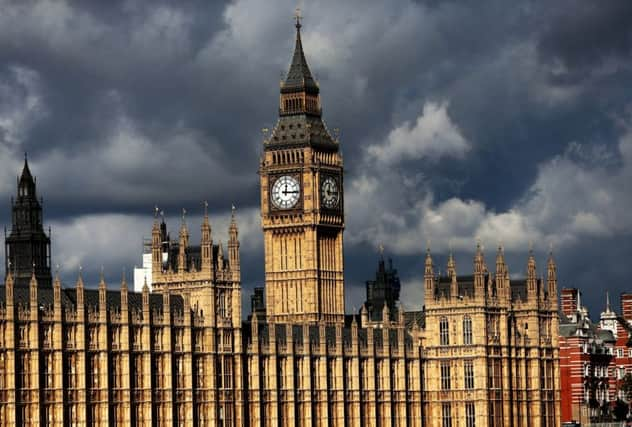Greg Wright: Why we need a tough tribunal that names and shames the bankers who abuse small businesses


Under fierce questioning from MPs, RBS chief executive Ross McEwan acknowledged that the bank’s restructuring business did not turn around the “vast majority” of small businesses it worked with.
But it is a source of national shame that small firms who believe they have been mistreated by the big banks still lack an effective mechanism for securing justice. We must abolish the current redress system and start again – with a tough new tribunal that will place the victims at the heart of the process.
Advertisement
Hide AdAdvertisement
Hide AdThe Yorkshire businessman and former Government adviser Lawrence Tomlinson, who published his own scathing account of the way RBS managed its relationships with some small businesses, is calling for individuals to be held to account.
Mr McEwan and RBS chairman Howard Davies were grilled by members of the committee, which has challenged RBS on its treatment of troubled small businesses during and after the financial crisis. RBS’s Global Restructuring Group (GRG) handled around 12,000 struggling firms between 2007 and 2012, some of which accuse the bank of pushing them into bankruptcy to pick up their assets on the cheap.
Anyone seeking clarity must have welcomed the City watchdog’s announcement that it finally plans to publish the full report about failings at the GRG. The Financial Conduct Authority had previously refused on grounds that the skilled persons or Section 166 review - which collects insights about a firm’s activities from third parties - would mean revealing confidential information about the individuals who contributed to it.
The FCA changed its mind after Treasury Select Committee chair Nicky Morgan pushed RBS bosses on whether they would give permission for the report’s release. Mr McEwan told MPs that should the FCA want to publish the report, the bank would not object. But is this U-turn a cause for celebration? Hardly. As Kevin Hollinrake MP, the vice chairman of the All Party Parliamentary Group on Fair Business Banking, observed, it’s quite incredible that the FCA’s decision to publish the full report is due to RBS providing consent.
“Who’s regulating who?’’ he asks
Advertisement
Hide AdAdvertisement
Hide AdAre the big banks, in effect, regulating themselves? No sector should be allowed to mark its own homework. The brutal fact remains that small firms lack a speedy route to justice.
If you’re a businessman whose enterprise has been destroyed by banking misconduct, you’re hardly in a position to sue a financial services heavyweight, which has access to a formidable legal arsenal.
So we need a new vision for regulatory reform. I salute the All Party Parliamentary Group on Fair Business Banking which is calling for a new independent, dispute resolution system between businesses and banks. This is much more radical than the FCA’s proposal to give more small businesses access to the Financial Ombudsman Service, which is already facing a heavy workload.
Only a tribunal led by an experienced judge, and supported by advice from former bankers, would have the clout to dispense justice. We need a transparent system where those guilty of wrongdoing are publicly shamed. This will act as a deterrent and enhance confidence in the banking sector, which will, in turn, provide a significant boost for the UK’s economy.
Advertisement
Hide AdAdvertisement
Hide AdIf the FCA cannot deliver a system that puts the victims first, then it must be scrapped.
Our MPs must summon the spirit of Oliver Cromwell, who thundered at the ineffectual Long Parliament: “It is high time for me to put an end to your sitting in this place.”